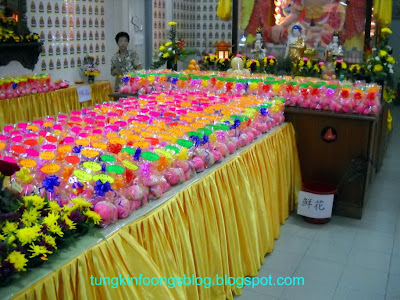 Wesak Day is celebrated by Buddhist throughout the world to commemorate the Birthday of Lord Buddha. It is an auspicious day in the Buddhist calendar, marking the full life cycle of birth, enlightenment and death of Buddha.
Wesak Day is celebrated by Buddhist throughout the world to commemorate the Birthday of Lord Buddha. It is an auspicious day in the Buddhist calendar, marking the full life cycle of birth, enlightenment and death of Buddha. 
It is this day that Buddhist devotees will gather in temples to release birds from captivation and to offer prayers. Other practice includes the offering of alms to monks and giving of free meals to the needy, as symbolic acts of giving liberation and doing good deeds.

Celebration of Wesak as explained by the late Ven. Dr. K Sri Dhammananda holds a special significance for the millions of Buddhists who comprise a fifth of the world’s total population. In thousands of temples across the world from Tokyo in the East to San Francisco in the West, Buddhists will pay homage to an Indian Prince who forsakes the pleasures of a royal household to bring peace and happiness to mankind.
 It is also most important to remember that this sacred day is purely and simply a religious festival and not a festive occasion for feasting, drinking and dancing. On this day all Buddhists are expected to reaffirm their faith in the Buddha Dhamma and to lead a noble religious life. It is a day for meditation and for radiating Loving-Kindness.
It is also most important to remember that this sacred day is purely and simply a religious festival and not a festive occasion for feasting, drinking and dancing. On this day all Buddhists are expected to reaffirm their faith in the Buddha Dhamma and to lead a noble religious life. It is a day for meditation and for radiating Loving-Kindness.



















